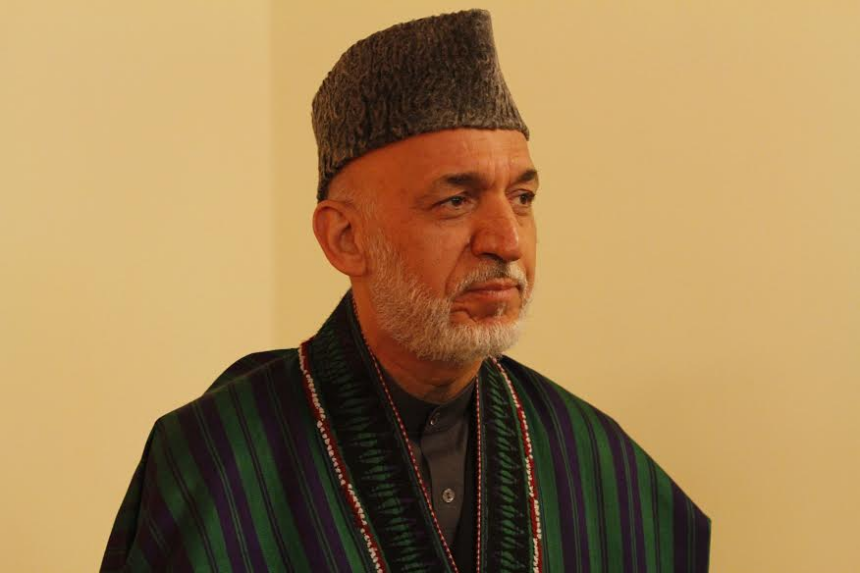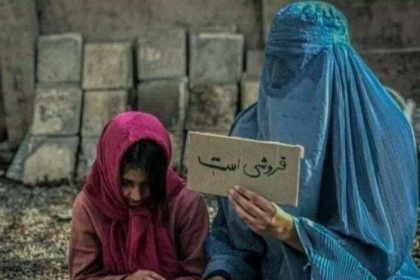RASC News Agency: In a rare and revealing interview with the Russian television channel RTVI, former Afghanistani President Hamid Karzai offered candid reflections on the country’s deepening crises under Taliban rule. Karzai who led Afghanistan through a turbulent post-Taliban transition from 2001 to 2014 emphasized that the denial of women’s rights and the ongoing exclusion of girls from education are among the most devastating setbacks the country has faced since the Taliban’s return to power. Karzai stressed that the current regime’s systematic oppression of women is not only a national tragedy but a fundamental reason why the Taliban government remains diplomatically isolated. “The issue of girls’ education and women’s rights is a serious obstacle to the improvement of life for our people,” Karzai said. “It is one of the principal reasons the international community refuses to recognize the Taliban regime.”
Despite the Taliban’s relentless rollback of basic freedoms, Karzai expressed hope that Afghanistani girls would eventually be allowed to return to schools and universities even, as he cautiously put it, “within the current system.” Such optimism, however, remains unsubstantiated amid the Taliban’s ongoing efforts to dismantle female participation in public life and criminalize women’s presence in education, employment, and civil society. Karzai acknowledged that the Taliban now exercise full control over the state apparatus, describing their governing model as one involving cabinet-style meetings and collective decision-making. “They are managing the country now,” he said, “and leadership decisions are made in a consultative manner much like in any formal government.” Yet this portrayal of governance rings hollow to many observers, given the Taliban’s unaccountable theocratic rule, lack of transparency, and absence of constitutional legitimacy.
Remarkably, Karzai reiterated his longstanding practice of referring to the Taliban as “brothers” a conciliatory phrase he has maintained even in the face of egregious human rights violations committed by the group. He urged unity among all Afghanistanis, including opponents of the Taliban and those living in exile: “We are all brothers and we must stand together.” His language, though intended to promote national cohesion, has been widely criticized for normalizing and legitimizing an authoritarian regime that has systematically dismantled women’s rights, silenced dissent, and instituted gender apartheid. Karzai also praised the Taliban’s personal conduct toward him following their seizure of Kabul in August 2021, claiming he was treated with respect and granted freedom of movement. This statement stands in stark contrast to the broader reality faced by thousands of former officials, journalists, civil society members, and women activists many of whom have been arrested, tortured, or disappeared under Taliban rule.
In a historical comparison, Karzai distinguished the U.S. intervention in 2001 from the Soviet invasion of 1979. “The Soviet Union invaded Afghanistan, but the Americans came with support from parts of our population after the 9/11 attacks,” he said. While acknowledging the mistakes made by U.S. forces particularly the use of night raids and the resulting civilian casualties Karzai credited the U.S. presence with key infrastructure and development gains, including road construction, education initiatives, and the rebuilding of national institutions. Reflecting on the power vacuum left by the abrupt U.S. withdrawal in 2021, Karzai voiced disappointment at the failure of regional powers including Russia, China, India, and Iran to coordinate a meaningful response to Afghanistan’s spiraling crisis. “There was no joint plan, no collective effort to assist the Afghanistani people,” he lamented, underscoring the diplomatic void that continues to exacerbate the country’s isolation and humanitarian collapse.
Addressing rumors about his current status, Karzai dismissed speculation that he is under house arrest. “I am free in Kabul,” he asserted, adding that his foreign travel is undertaken with the Taliban’s permission. The very need to seek approval for such travel, however, is a telling indicator of how limited the autonomy of even high-profile political figures has become under the Taliban’s increasingly authoritarian rule.






